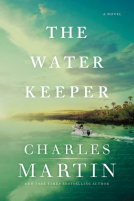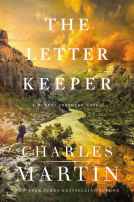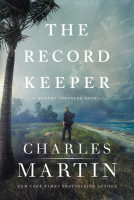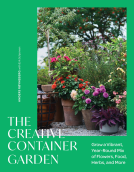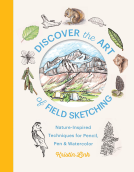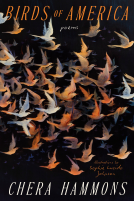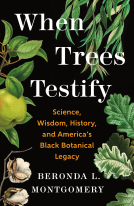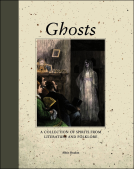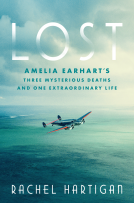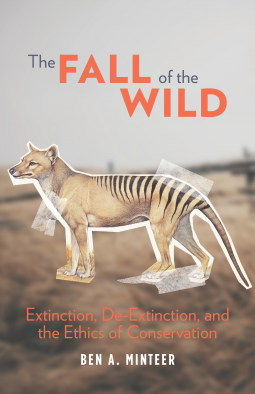
The Fall of the Wild
Extinction, De-Extinction, and the Ethics of Conservation
by Ben A. Minteer
This title was previously available on NetGalley and is now archived.
Send NetGalley books directly to your Kindle or Kindle app
1
To read on a Kindle or Kindle app, please add kindle@netgalley.com as an approved email address to receive files in your Amazon account. Click here for step-by-step instructions.
2
Also find your Kindle email address within your Amazon account, and enter it here.
Pub Date Dec 11 2018 | Archive Date Mar 31 2019
Talking about this book? Use #TheFallOfTheWild #NetGalley. More hashtag tips!
Description
In The Fall of the Wild, Ben A. Minteer calls for reflection on the ethical dilemmas of species loss and recovery in an increasingly human-driven world. He asks an unsettling but necessary question: Might our well-meaning efforts to save and restore wildlife pose a threat to the ideal of preserving a world that isn’t completely under the human thumb? Minteer probes the tension between our impulse to do whatever it takes and the risk of pursuing strategies that undermine our broader commitment to the preservation of wildness. From collecting wildlife specimens for museums and the wilderness aspirations of zoos to visions of “assisted colonization” of new habitats and high-tech attempts to revive long-extinct species, he explores the scientific and ethical concerns vexing conservation today. The Fall of the Wild is a nuanced treatment of the deeper moral issues underpinning the quest to save species on the brink of extinction and an accessible intervention in debates over the principles and practice of nature conservation.
Advance Praise
The central ethical question addressed by Minteer is not only how far might we go to prevent biological extinction, but how far should we go? He comes to this conundrum as a distinguished environmental philosopher with a broad and deep record of thoughtful scholarship, as well as the heart of someone who obviously cares about the future of nature. And most importantly, at a time when answering the question is ever more urgent, he plots a carefully explicated, cautiously hopeful course forward.
-Harry W. Greene, author of Tracks and Shadows: Field Biology as Art
Available Editions
| EDITION | Other Format |
| ISBN | 9780231177788 |
| PRICE | $29.00 (USD) |
Average rating from 15 members
Featured Reviews
 Michaela K, Reviewer
Michaela K, Reviewer
This book focuses on the ethics, pros and cons, of a variety of conservation methods. Ben Minteer makes use of several popular examples to make his point. Examples and topics that make an appearance in this book include the Passenger Pigeon, Great Auk, Thylacine, Elephants, American Bison, Condors, specimen collecting of marginal species, captive breeding programmes, the future appearance of zoos (think Jurassic Park without the dinosaurs), species translocation, assisted colonization of endeangered species outside their usual range, resurrection science, and the limits of technological "fixes" to problems.
What the author has tried to promote in this book is an alternative environmental ethic, what he calls "pragmatic preservationism". This concept captures two core ideas regarding conservation" (1) the growing need to intervene more aggressively to save species in a rapidly changing environment; and (2) an acknowledgement of our resonsibility to preseve a convincing sense of the wild and a respect for nature as we implement (or not) these interventions.
While this isn't a particularly original or detailed examination of the topic, it does make for an interesting, well-written, thought-provoking, enjoyable and short introduction to conservation ethics, with no irrelevant biographical side tangents.
With the sixth mass extinction event on Earth underway, science surrounding the study of wild animals, their habitat, and their conservation has been focused on how we can save animals and preserve diversity. Many different methods have been proposed and some have been used, to varying success. However, the discussion rarely focuses on whether we should use these methods, and their ethical implications. Scientific studies themselves attempt to be as neutral as possible, but the applications of such research is where ethics particularly play a role. There are many ways to save a species, but to what limits should we interfere? The Fall of the Wild raises the important questions about some of the most controversial conservation techniques and provides the viewpoints from both sides. This was designed to be a shorter book in order to allow the reader to complete the book within two or three sittings.
Topics included for discussion in this book focus on what researchers can do, and whether they should or shouldn’t use such techniques in order to save a species from extinction. No definitive answers are provided, as that all depends on which principles you hold true from an ethical standpoint. The author does present his personal beliefs on the topics, but acknowledges every view point. The book begins with a discussion of scientific collecting of samples from species and populations of unknown size, or that were only rediscovered. Should we sample in order to understand the population better and risk taking too many out of the breeding pool, or should we forsake the knowledge we can gain in order to maintain the gene pool? The book then moves in to the question about rearing animals in captivity to reintroduce into the wild. Does this actually preserve the species, or are they now a remnant of what they were? What about zoos? Are they a cruel shadow of the wild, or a conservational tool? What about de-extinction? Will the possibility of being able to bring any animal back from extinction lesson our efforts to fix the root cause? And would that time and money be better spent on saving living species instead of saving ones long gone? There are so many questions!
This was an intriguing read that made me ponder many of the practices and thoughts that go into conservation biology and what ramifications they might have for different species and ecosystems as a whole. These are the questions that we should be talking about more, both between scientists and the public as these decisions affect us all. This book provides a great diving board into the conversations that we all need to be having, and would be perfect as a discussion starter in a biological ethics course, or for anyone who just generally cares about the environment.
*I would like to thank the publisher, author, and NetGalley for providing an ARC copy of this book in exchange for an honest review*
 Bookseller 437333
Bookseller 437333
Publishers Summary "The passenger pigeon, the great auk, the Tasmanian tiger--the memory of these vanished species haunts the fight against extinction. Seeking to save other creatures from their fate in an age of accelerating biodiversity loss, wildlife advocates have become captivated by a narrative of heroic conservation efforts. A range of technological and policy strategies, from the traditional, such as regulations and refuges, to the novel--the scientific wizardry of genetic engineering and synthetic biology--seemingly promise solutions to the extinction crisis.
In The Fall of the Wild, Ben A. Minteer calls for reflection on the ethical dilemmas of species loss and recovery in an increasingly human-driven world. He asks an unsettling but necessary question: Might our well-meaning efforts to save and restore wildlife pose a threat to the ideal of preserving a world that isn't completely under the human thumb? Minteer probes the tension between our impulse to do whatever it takes and the risk of pursuing strategies that undermine our broader commitment to the preservation of wildness."
A thoughtful book with insights into the Anthropocene. Ben A. Minteer provokes the reader to reflect beyond how humans have willfully impact the environment and leads the reader to consider some uncomfortable questions.
 Patty B, Reviewer
Patty B, Reviewer
A collection of six essays on the philosophical considerations involved in protecting wild species. I picked up this book because I'm hugely interested in de-extinction (the actual ongoing research to try and revive various extinct species through cloning and/or genetic engineering; the passenger pigeon is one currently closest to success, though the project on the woolly mammoth is probably more well-known), which Minteer is not a fan of. In general, I'd call Minteer a moderate for his views on conservation. Take the issue of zoos, for example. Several groups have called for their widespread closure, but Minteer doesn't go that far; instead, he points to the role of captive breeding in preventing the extinction of the California Condor or the Arabian Oryx, as well as the possibility of zoos inspiring visitors to become more involved in conservation. But he's not for massive deregulation or the too-close confinement of animals either.
Unsurprisingly, he's against de-extinction. His argument mostly centers on the idea that if humans know that we can 'fix' extinction, we won't try to prevent it as strongly. I don't find this convincing; it's not like de-extinction is easy, cheap, or simple, and I can't imagine extinction ever coming to seem unimportant, no matter how many technological fixes might exist.
But despite my disagreement on that issue, I very much enjoyed The Fall of the Wild. Minteer's writing is thoughtful, clear, and engaging, and he doesn't stick to theoretical philosophy, but tells multiple interesting stories. I particularly enjoyed his descriptions of Zootopia, a not-yet-built zoo in Denmark that will be an immense, wall-less, cage-less landscape where animals wander free and humans peek at them from hidden enclosures. The story of the relocation of 500 elephants from one nature preserve to another several hundred miles away, done via helicopter and trucks, was also fascinating. Minteer frequently refers to Aldo Leopold (an American conservationist from the early 1900s), whom he has modeled his thinking after. Leopold sounds incredible, and Minteer's summaries of his life and philosophy were a new area to me, but one I found very compelling.
Overall a very intelligent and readable book if you're at all interested in the topic.
https://www.goodreads.com/review/show/3674948492
Readers who liked this book also liked:
Kristin Link
Arts & Photography, Crafts & Hobbies, Outdoors & Nature
